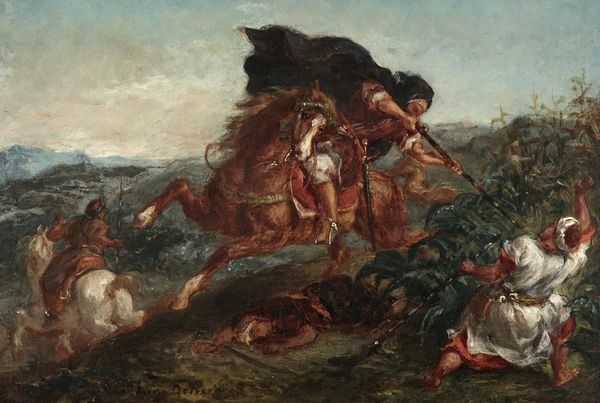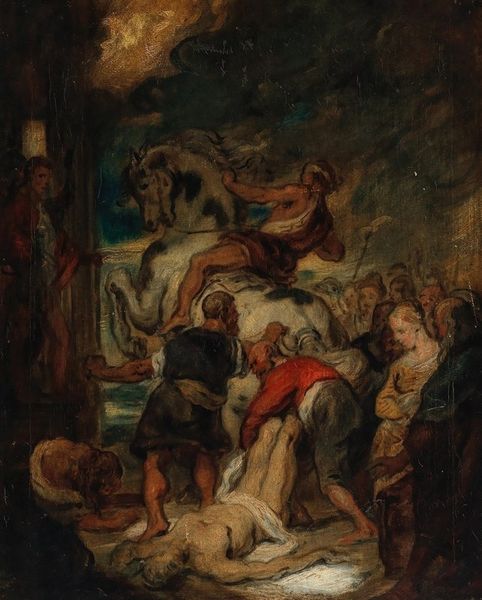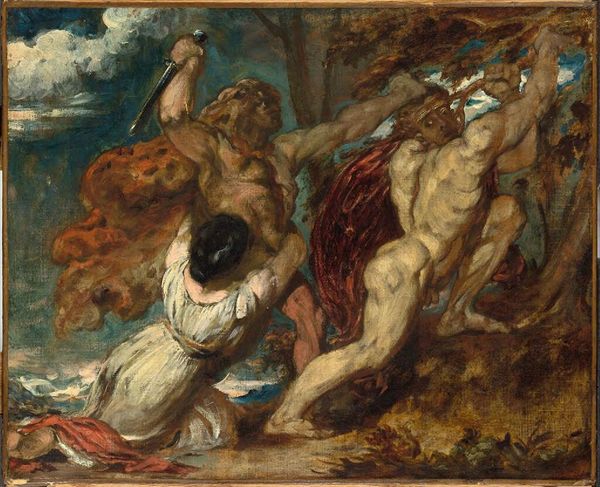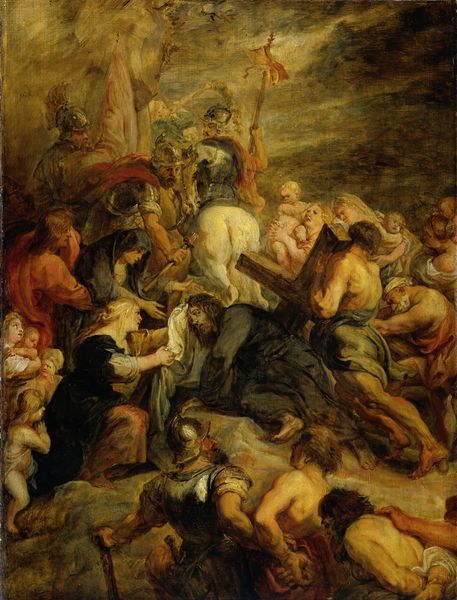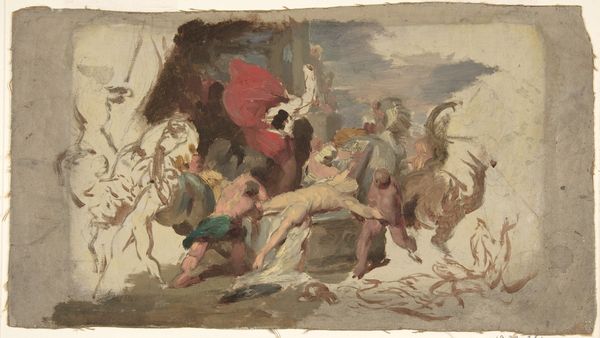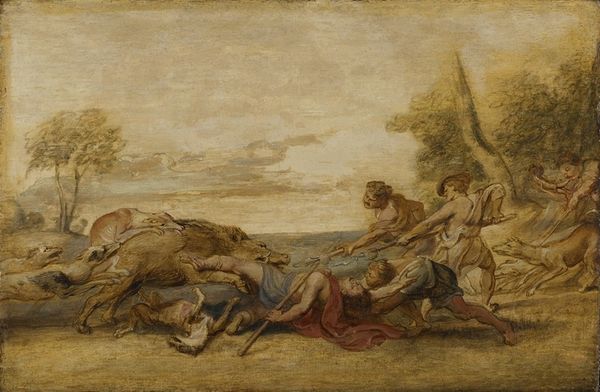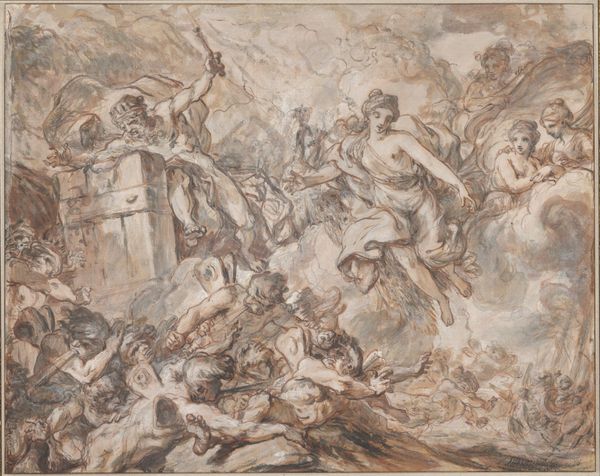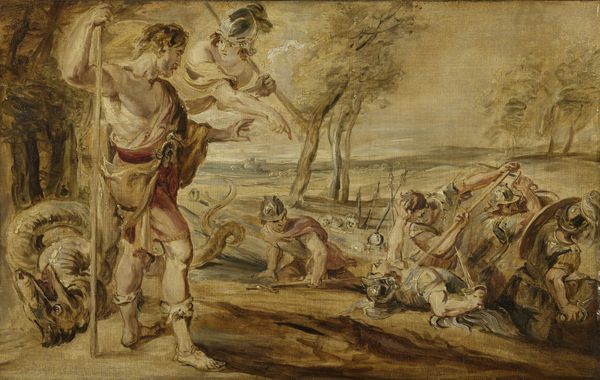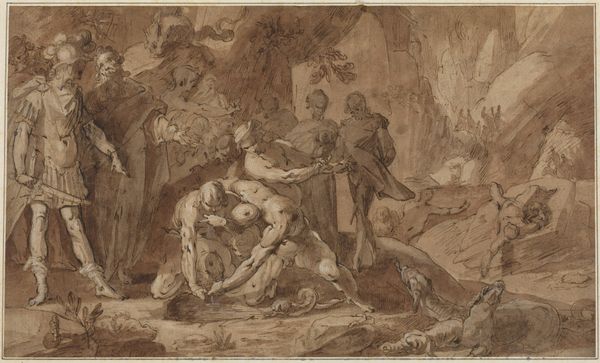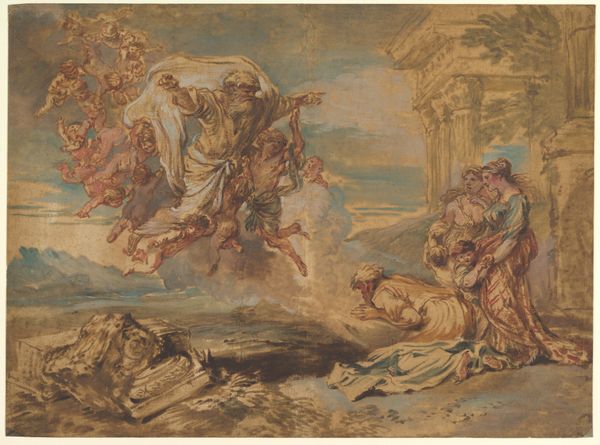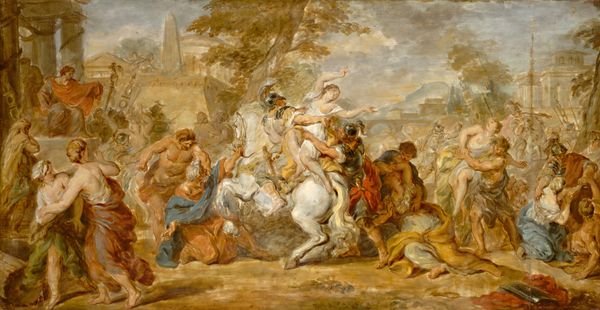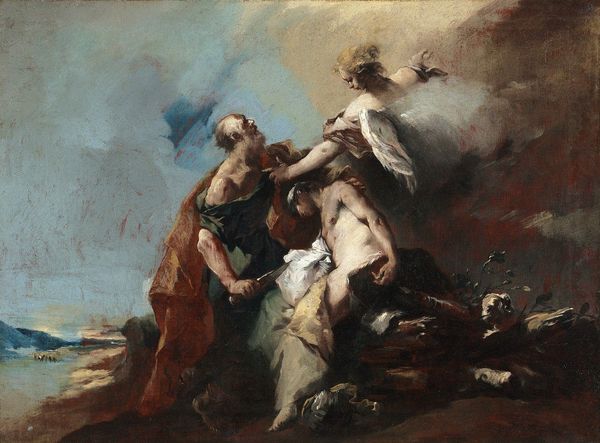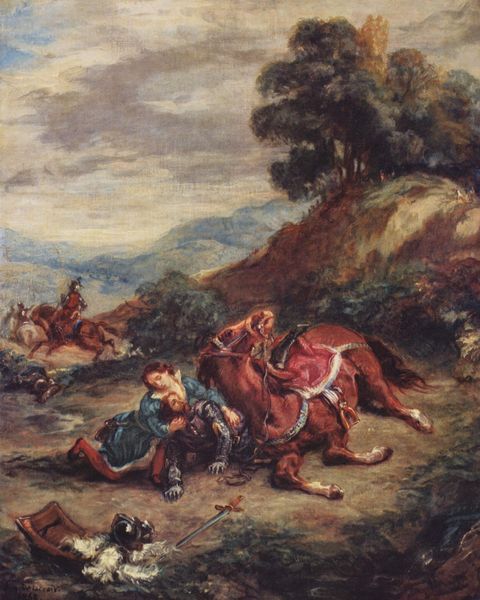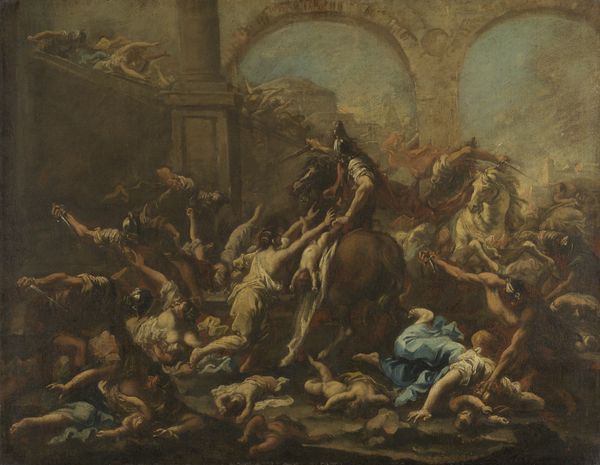
Copyright: Public Domain: Artvee
Editor: So this is "The Lion Hunt," an oil painting by Eugène Delacroix from around 1854. It's a chaotic scene – humans and lions intertwined in what looks like a life-or-death struggle. What do you see in this piece, beyond the obvious drama? Curator: It's more than just visual drama, isn't it? Delacroix’s "Lion Hunt" is deeply rooted in the colonial fantasies of 19th-century Europe. Think about it: who gets to paint these scenes of conquest and dominance? Who are the "hunters" and the "hunted" in broader social narratives? Delacroix is playing with these power dynamics, isn't he? What’s your impression? Editor: I hadn't really thought about it that way, to be honest. I was focused on the dynamic composition, the impasto, the energy. The colonial angle makes me reconsider the romanticism – is it romanticizing violence and domination? Curator: Precisely! And who benefits from this romanticized vision? We need to critically examine the Orientalist gaze at play here. How does Delacroix frame North Africa as a space for European adventure and masculine prowess? He’s not just painting a hunt; he’s reinforcing a specific ideological narrative about civilization versus savagery. Does understanding that shift your view of the painting? Editor: It definitely complicates things. It makes me wonder about the ethical responsibility of artists when depicting other cultures. Is it possible to appreciate the artistic skill while still being critical of the underlying message? Curator: Absolutely. Recognizing the problematic elements doesn’t negate the artistic merit, but it does demand a more nuanced understanding. By engaging with these questions of representation, power, and cultural appropriation, we can use artworks like this to foster critical dialogues about our own present. Editor: That’s really powerful. I'll definitely look at Delacroix – and other similar paintings – differently now. It’s not just about art for art's sake, is it? Curator: Exactly! It’s about art as a reflection – and sometimes a reinforcer – of social and political realities.
Comments
No comments
Be the first to comment and join the conversation on the ultimate creative platform.
